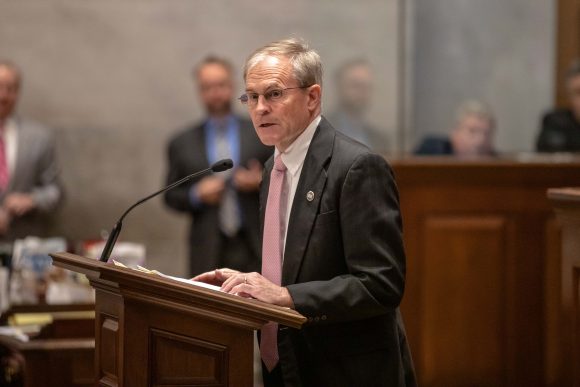Bobby Nicholson and his company, Outlier’s Advantage, want Tennessee kids and kids nationwide to have the best possible chance to earn money to attend college. That’s why they created the It Pays to Prep guide. At first, it was a guide to merit-based scholarship criteria for Tennessee schools. Now, they’ve gone national. I asked Nicholson to tell me more about It Pays to Prep and what it means for students headed to college.
1) Tell me more about It Pays to Prep. When did it start? What information is in it?
We published the first edition of It Pays to Prep in 2016. Many families were not aware of the guaranteed scholarship model that most colleges now use. Furthermore, most families weren’t aware of how much money was being awarded for each additional point that their student earns on the ACT. We also were trying to give our students more motivation to put in the work necessary to beat the ACT. Hence, It Pays to Prep was born.
In its most basic form, it gives families an easy way to find their student’s GPA and ACT score and find how much money they will be awarded at different schools. We list the value per year and over four years, the tuition and fees per year at that school, and the amount remaining for families to pay per year. It also lists general information about the school.
It Pays to Prep helps students consider a wide range of colleges that they may not have ever looked into before. It also helps families easily compare schools to each other.
2) This has historically been a guide focused on Tennessee schools — what made you take it national?
Our plan is to become the premier ACT prep provider for high-achieving students nationwide. No one else is compiling anything like this, especially not in the easy to read format that we do. We hope this begins to garner traffic and attention all over the nation and simultaneously spreads the word about the work we are doing at Outlier’s Advantage: ACT Prep Academy.
3) What information is in It Pays to Prep that parents can’t or won’t find from other sources?
Parents can find almost all of the information elsewhere. The benefit of It Pays to Prep is that we spend hundreds of hours finding all of this information, separating the wheat from the chaff, and compiling it all on one easy to read document.
4) What do you see as the biggest challenge for parents and students navigating the college admissions process?
There is so much variation in what students should be doing dependent on their current situation and their goals. Most of the information available is geared towards the average college-bound student. For above-average students, unless they go to a great school, it is often very hard for them to know what they need to be doing and when.
Here are some simple pieces of advice for students who are hoping to win merit-based scholarship money or attend a competitive school.
⁃ Make sure you have at least a 3.8 weighted GPA by the end of your junior year. Big schools are usually only looking at GPAs from freshman through junior year. Students can lose their scholarship based on how they do their senior year, but students cannot gain it. This may change with everything going on because of COVID, but it is best to be safe.
⁃ Take the hardest classes your school offers. Competitive schools have a rating system that ranks how many of the hardest classes you took. This will also better prepare you to be successful at the college level and on your ACT.
⁃ If you are in middle school or younger, set a goal to have read 100 books by the end of your sophomore year of high school. Your reading speed will be one of the biggest determining factors in how you do on standardized tests and how long homework takes in college.
⁃ Take your first ACT before your junior year. Most high schools offer it for the first time in the spring semester of junior year. This is great for most students. However, if you are hoping to win merit-based scholarship money, we would advise taking it as soon as you can after you complete algebra II and geometry. This gives you your sophomore summer and junior year to prep for your ACT, and it gives you your junior summer and senior fall to search for colleges and scholarships.
⁃ Governor’s School applications often need to be submitted before December of your junior year.
⁃ Though it has some reasonable critics, collegescorecard.ed.gov is a must-use resource for students deciding where to go to college. The two metrics that we use it for the most are the percentage of students returning after their first year and the average salary after graduation. These numbers aren’t necessarily representative of what your experience will be like, but they are good at helping to compare schools.
Here’s the latest version of the national guide.

For more on education politics and policy in Tennessee, follow @TNEdReport









